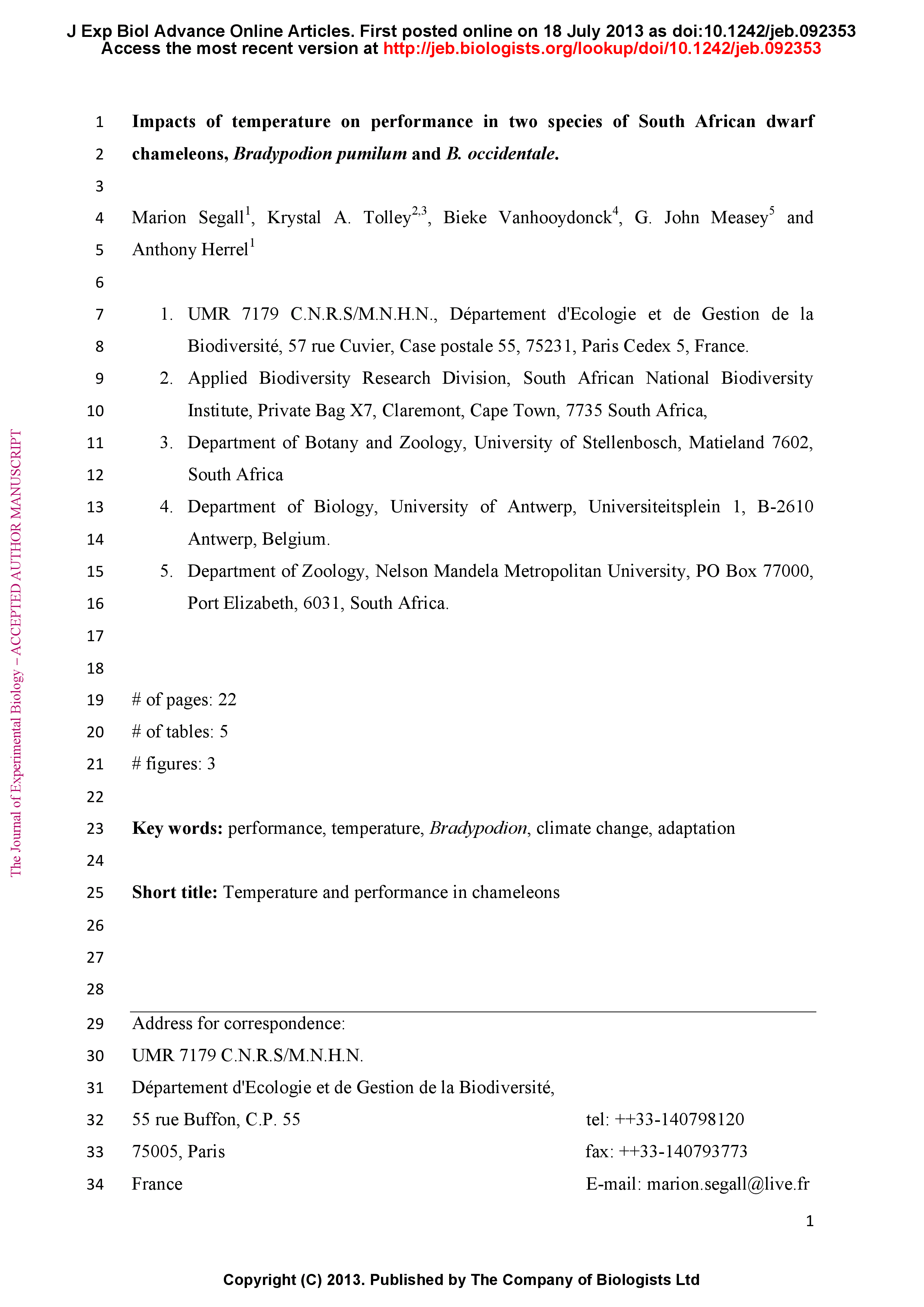Summary
Temperature is an extrinsic factor which influences reptile behavior given that their physiology is dependent on environmental temperature. Understanding the impact of temperature on performance traits is important as it may affect the ecology and fitness of ectothermic animals such as reptiles. Here we examine the temperature dependence of performance in two species of South African Dwarf chameleon (Bradypodion), a semi-arid and a mesic adapted species. Ecologically relevant performance traits were tested at different temperatures to evaluate their thermal dependence and temperature-performance breadths for 80% and 90% of each performance trait were calculated. Our results show distinct differences in the thermal dependence of speed versus force-related performance traits. Moreover, our results show that the semi-arid species is better adapted to higher temperatures and as such has better chances to cope with the predicted increases in temperature. The mesic-adapted species seems to be more sensitive to an increase in temperature and could therefore potentially be threatened by predicted future climate change. However, further studies investigating the potential for acclimation in chameleons are needed to better understand how animals may respond to predicted future climate change.








